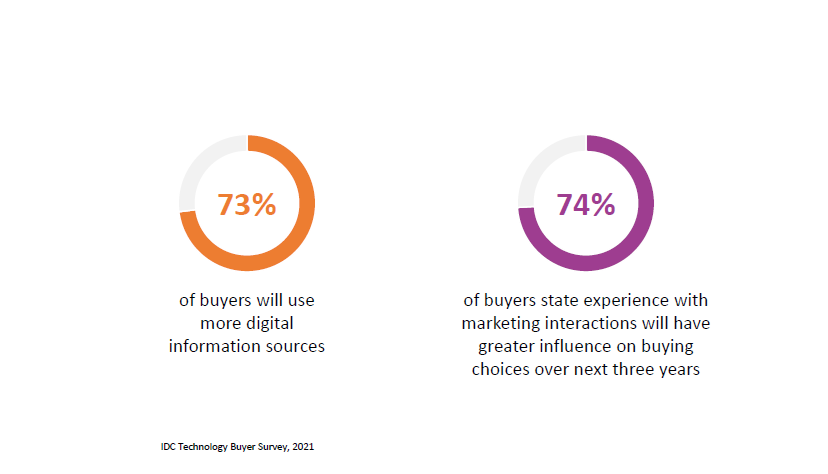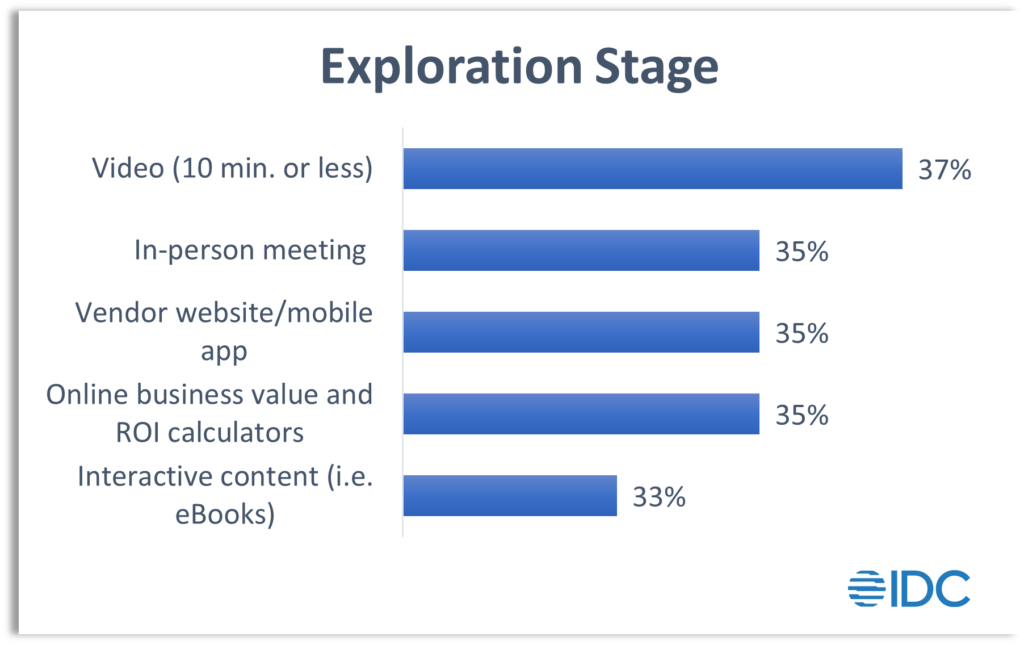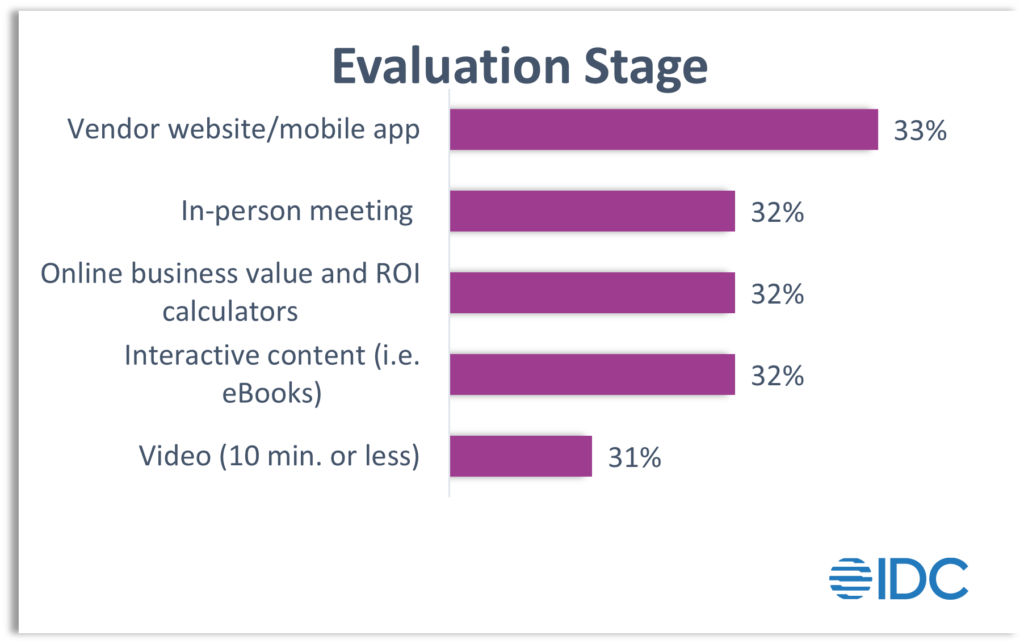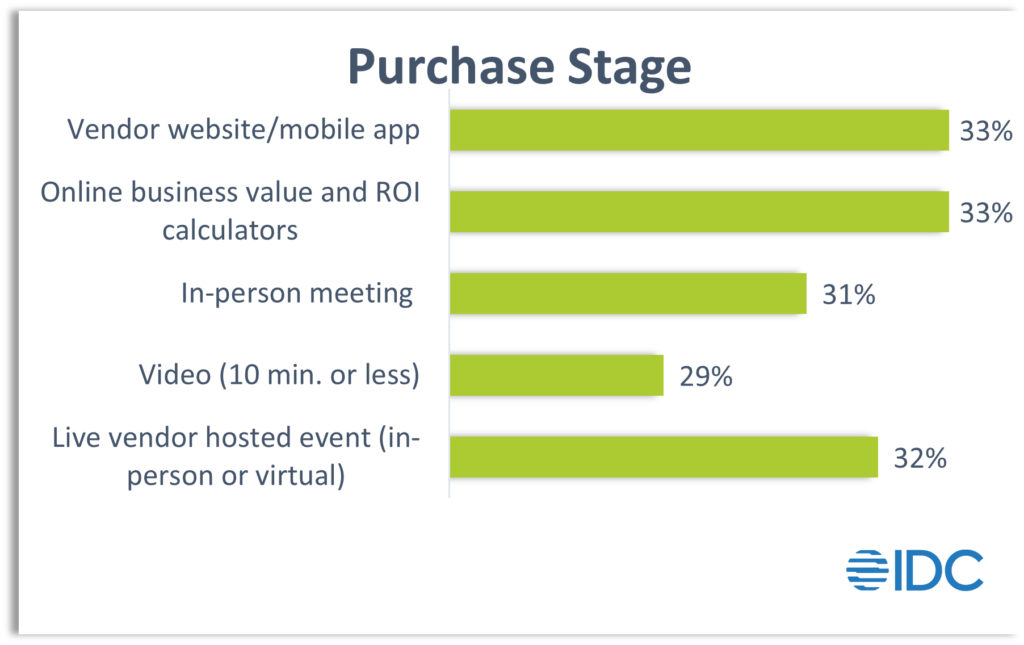What is Good Content Marketing?
Good content marketing engages your target audience and compels them to move along your buyer journey. It is not enough, however, to simply produce a lot of content. In fact, 80% of content that is created, is not consumed. A strong digital content marketing strategy needs to consider how to provide relevant and personalized content to the end user, with a goal of driving more leads and shortening your sales cycle.
To see success with digital content marketing efforts, it should have the following traits:
- Quality content that establishes your credibility as a brand
- Conveys thought leadership within your industry
- Appeals to your market at every stage in their journey: explore, evaluate, and purchase
The problem is, many B2B marketers are encountering common agitations with their digital content: not seeing enough traffic and not generating enough leads, it takes a long time to develop quality content and it’s a challenge to prove its effectiveness.

“Without orchestration, customer interaction is “noise”.”
Laurie Buczek, Research Vice President, CMO Advisory Practice, IDC
“80% of content that is created is NOT consumed.”
Jason Cunliffe, – Group VP, Content Marketing Services, IDC

How to Create Compelling Marketing Content That Converts
Your content must provide a unique perspective on your business, industry trends and challenges. Quality content that is steeped in research and offers a level of personalization, not only establishes your credibility as a brand, but delivers on your buyer’s needs and becomes a strong demand generator. Make sure that your content strategy addresses the specific concerns of your target personas, and is delivered in various, high-production digital formats. One way to ensure your content marketing plan provides the research your buyers are in search of, is to capitalize on the market intelligence and insights that IDC’s content marketing services can provide.
Download: A New Framework for B2B Marketers and Sellers

The Most Effective Content at Each Stage of the Buyer Journey
IDC’s 2022 B2B Tech Buyer survey studied buyer communication and content preferences and behaviors at each stage of their journey. It’s clear that today’s buyers are embracing interactive content but also expect a blend of physical and digital experiences.



Why IDC Content Marketing Services is the Right Fit for Tech Vendors
IDC’s marketing content is research-based and provides your target personas with the market intelligence they’re looking for online. We support your content marketing strategy and help you stand out with data-driven insights from the most influential tech analysts, worldwide. For greater flexibility and speed to market, our content can be licensed or, you can select customized content that focuses on the value that your business delivers to its end users and elevates your thought leadership.

IDC’s Campaign Content Bundles Engage, Nurture and Generate Leads
IDC research-based assets provide relevant information to engage and educate your target audiences in support of your initiatives through the stages of the buyers’ journey. We have created three bundles, that can fill your content calendars quickly and easily, with content your buyers are searching for online.

>> Request Pricing for IDC’s Digital Content Bundles
IDC Fuels your Digital Marketing Campaigns with Content that Performs
Fill your content calendar quickly and effectively. Ask us about our content bundles today.




